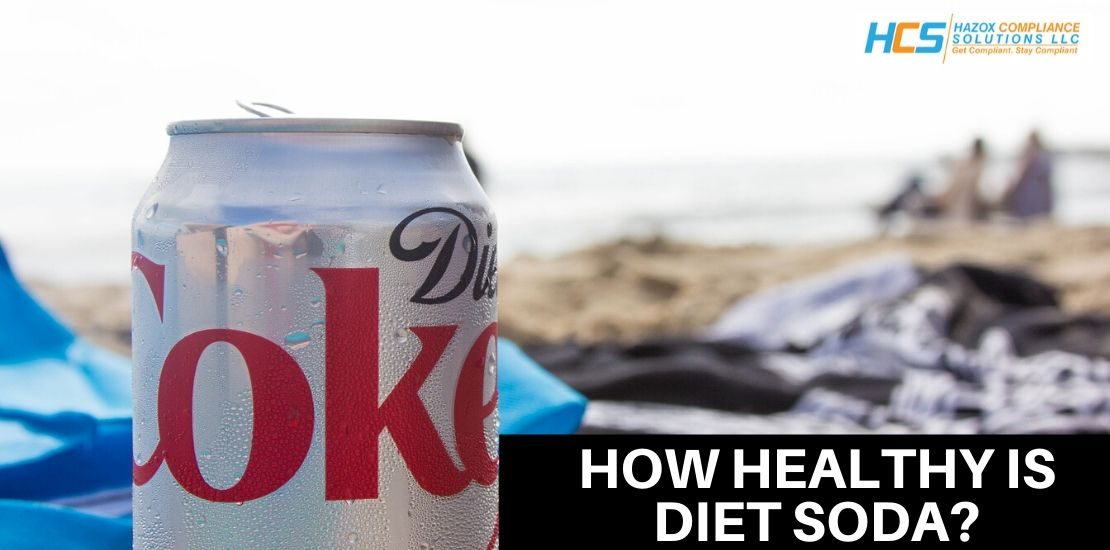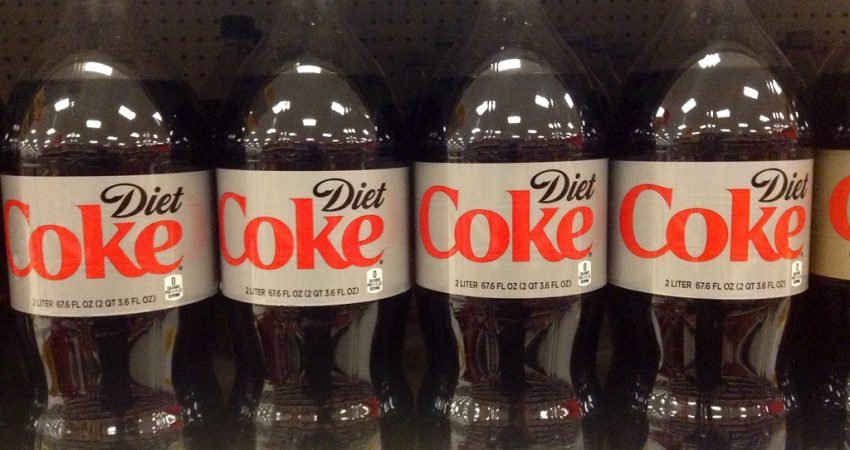- October 25, 2019
- Posted by: admin
- Category: Blogs, News

For many years, we have heard that soft drinks should be eliminated from our diet because they are harmful and lead to obesity. This is due to the high sugar content associated with the intake of conventional soft drinks and sodas. In response, alternatives sweetened with high-potency artificial and natural sweeteners were introduced to the market that promised to satisfy the craving without the excess calories. Now the question remains, are they as healthy as we thought?
Sweeteners, the answer to a market need?
Artificial sweeteners are synthetic substitutes for sugar, and are derived from natural substances, such as herbs or sugar itself. Artificial sweeteners are also known as intense sweeteners because they are much sweeter than sugar.
Artificial sweeteners can be attractive alternatives to sugar because they add virtually no calories to the diet. In addition, you only need a fraction of an artificial sweetener compared to the amount of sugar you would normally use.
These substances have been extensively studied over the past few decades and are regulated by the FDA. Some of them are saccharin, aspartame and sucralose based. According to their criteria they are completely safe to consume and can be found in a large number of commercial products such as juices, foods, and diet sodas.
As mentioned above, based on numerous medical studies, the consumption of sugar-sweetened beverages was directly associated with health problems such as obesity, type II diabetes, and metabolic syndrome. Based on these findings, many researchers and physicians proposed substituting sugar with high intensity, calorie-free sweeteners in beverages and foods on the market to try to make them healthier.
However, the reduction in calories consumed through diet sodas does not always translate into a positive impact on the body.
Are diet sodas bad for you?
Professor Susan E. Swithers, PhD, conducted a study that investigated the relationship of diet soda consumption to the onset of metabolic syndrome, in contrast to its sugary counterparts. According to the data, more than 30% of American adults and 15% of American children consume these artificial sweeteners.
As a result of this and other studies consulted, the researcher concluded that the consumption of diet soft drinks should be avoided as much as regular ones because they are also considered a threat to health.
There is a lot of research linking diet and regular soft drink consumption to a multitude of health problems including coronary heart disease and even death. Artificial sweetener beverages (ASBs) are suggested as a healthy substitute for regular beverages and their consumption has increased considerably in North America.
Artificial sweeteners seem to confuse the body’s natural ability to manage calories based on the taste of something sweet. People tend to overeat, even if they drink diet sodas. And listen to this: People who consume artificial sweeteners are also twice as likely to develop metabolic syndrome.
The results of an April 2019 study published in the journal Circulation tell us that a high consumption of artificially sweetened beverages can actually increase the risk of total mortality (death from any condition), especially from cardiovascular disease. In this study, were found to have the highest levels of dietary soft drink consumption.
And if you’re thinking it sounds like a better idea to just drink regular sugary drinks, think again: The same study found that the more regular sodas that participants drank, the greater their risk of total mortality, especially from heart disease and cancer.

Some health problems associated with diet soda consumption are shown below:
Depression:
Sweetened beverages, coffee and tea are the most commonly consumed non-alcoholic beverages and can have significant health consequences. Compared to non-drinkers, frequent consumption of sweetened beverages, especially diet beverages, may increase the risk of depression among older adults.
Kidney Damage:
A study reviewed by the National Kidney Association found that diets high in sodium (salt) were damaging to the kidneys, and provided more information on heart disease, cancer risk factors and the use of hormone treatments after menopause. Drinking a lot of unsweetened cola drinks or other carbonated soft drinks may have effects on the kidneys, the study reported. Kidney function declined over two decades in women who drank several diet sodas a day, according to researchers from the prestigious Nurses’ Health Study. In fact, compared to women who didn’t drink diet sodas, women who drank sodas had a 30% greater reduction in kidney function over 20 years.
Type II diabetes and metabolic syndrome:
Daily consumption of at least one diet soda was associated with a 36% increased relative risk of incident metabolic syndrome and a 67% increased relative risk of type 2 diabetes compared to no consumption. These figures are supported by a clinical study conducted for a multi-ethnic group of arteriosclerosis patients.
Cardiovascular Disease:
Similarly, in a study published by the American Heart Association, intake of artificially sweetened beverages was associated with an increased risk of stroke, coronary heart disease, and all-cause mortality. These new findings add to the potentially harmful effects of consuming large amounts of diet soda with respect to these health outcomes.
Damage to the Lungs:
A new study suggests that drinking soft drinks, including diet ones, may increase the risk of respiratory diseases such as asthma and chronic obstructive pulmonary disease (COPD). The authors of this study noted that one of the reasons why soft drink consumption might be associated with these is due to the increased risk of obesity, which in turn increases the risk of asthma and COPD.
Potential Brain Damage:
A study by Harvard Medical School found that compared to people who didn’t drink diet soda, those that did drink them at least once a day had three times as many strokes and were three times more likely to develop dementia.
Final Thoughts: Is diet soda bad for you? (Yes.)
- Diet sodas, while offering a very low-calorie alternative, are no healthier than their regular sugar-sweetened versions.
- Diet sodas do not promote weight loss, contrary to popular belief.
- Diet sodas are directly related, according to several studies, to an increased risk of mortality, metabolic damage, heart disease, kidney damage, weight gain, and other health problems.
- If you want to indulge in a sweet drink, consider a much healthier option: soda water flavored with fruit or kombucha.
